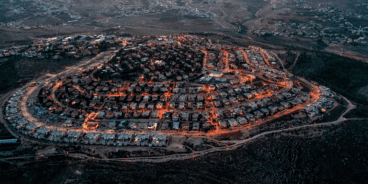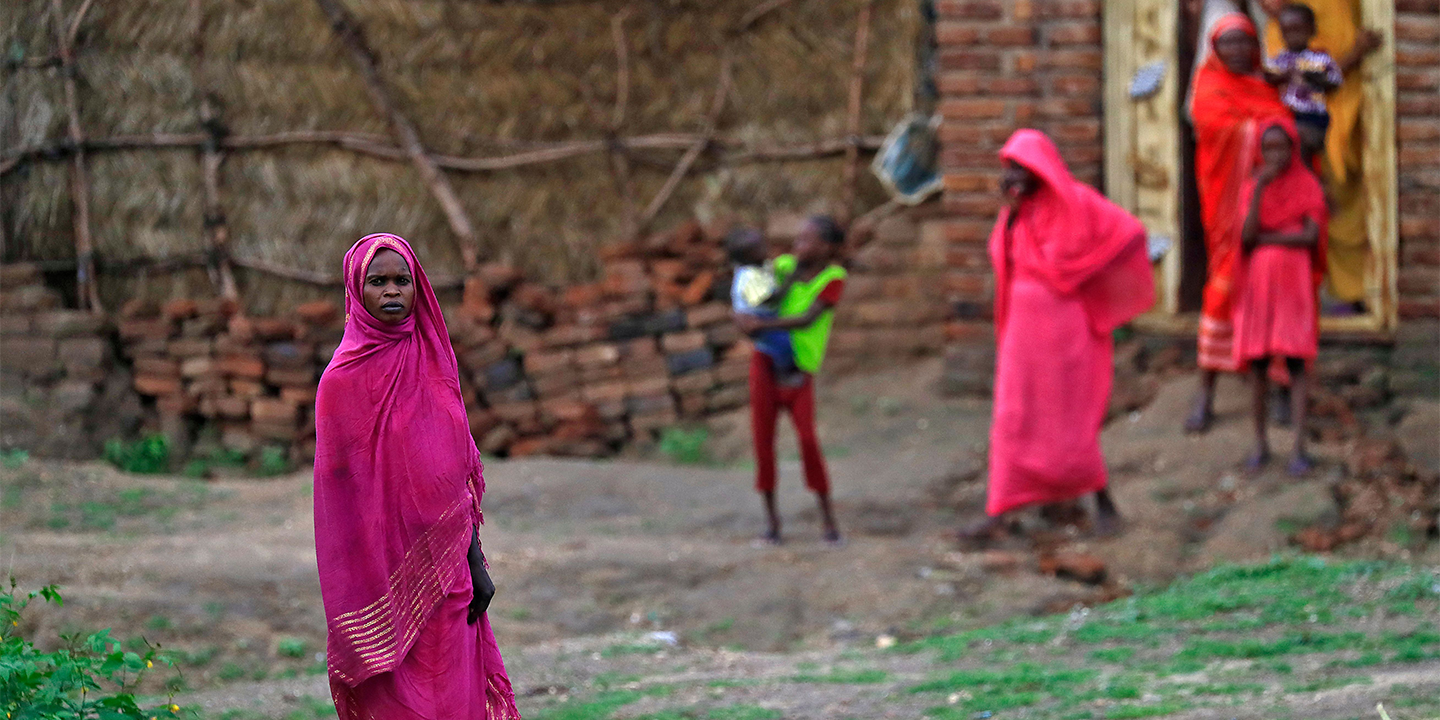

Atrocity Alert No. 361: Sudan, Ukraine and North Korea
Atrocity Alert is a weekly publication by the Global Centre for the Responsibility to Protect highlighting situations where populations are at risk of, or are enduring, mass atrocity crimes.
ALARMING RISE IN SEXUAL VIOLENCE AGAINST WOMEN AND GIRLS IN SUDAN
On Thursday, 17 August, a group of more than 30 UN experts expressed alarm about reports of brutal and widespread use of rape and other forms of sexual violence during the four-month-long conflict in Sudan. The Rapid Support Forces (RSF) and allied militia are subjecting civilians, particularly women and girls, to sexual violence, including rape, sexual assault and exploitation and sexual slavery. Women have also been forcibly disappeared and detained and held in inhuman or degrading conditions, making them vulnerable to sexual violence.
The UN experts stated that alleged RSF fighters are using sexual violence “as tools to punish and terrorize communities. Some of the reported rapes appear to be ethnically and racially motivated.” Evidence suggests that Arab affiliated militias and the RSF are targeting civilians from Massalit and other non-Arab communities and have committed ethnic cleansing and ethnically motivated killings, particularly in Darfur. Rape and other forms of sexual violence are grave human rights violations that may amount to war crimes and crimes against humanity or could be considered as acts of genocide.
Earlier this month, the UN Special Representative on Sexual Violence in Conflict, Pramila Patten, met with the commander of the RSF, General Mohamed Hamdan “Hemedti” Dagalo, and discussed the reports of increasing sexual violence and of slave markets in Darfur, as well as the targeting of medical infrastructure, personnel providing support to survivors of sexual violence, and women human rights defenders. In response to the spike in sexual violence, Martin Griffiths, UN Under-Secretary-General for Humanitarian Affairs and Emergency Relief Coordinator, stressed, “it is unconscionable that Sudan’s women and children – whose lives have been upended by this senseless conflict – are being further traumatized in this way. What we are witnessing in Sudan is not just a humanitarian crisis; it is a crisis of humanity.”
Sexual violence has been endemic in Sudan and used as a weapon of war – particularly in the decades-long conflict in Darfur – to displace, punish, control, humiliate and inflict fear among populations. The UN Secretary-General has listed both the Sudanese Armed Forces and the RSF as “parties credibly suspected of committing or being responsible for patterns of rape or other forms of sexual violence” in the annual report on conflict-related sexual violence since 2017.
Parties to the conflict must urgently commit to effective measures to prevent and address any form of sexual violence, including by implementing and declaring a zero-tolerance policy and holding perpetrators accountable. The UN Security Council must consider imposing targeted sanctions on those responsible for conflict-related sexual violence by using designation criteria and the subsequent listing of sanctioned individuals to prevent and curb sexual violence in Sudan. Survivors must have access to essential health services and supplies, including post-rape kits and Post-Exposure Prophylaxis kits to prevent HIV transmission, as well as psychological support.
ESCALATING PATTERN OF RUSSIAN AIRSTRIKES ON CIVILIAN AREAS OF UKRAINE
On 19 August at least seven people, including a six-year-old girl, were killed when a Russian missile struck a theatre in the Ukrainian city of Chernihiv. The strike wounded at least 144 others, including 15 children. Ukraine’s UN Humanitarian Coordinator, Denise Brown, emphasized, “It is heinous to attack the main square of a large city, in the morning, while people are out walking, some going to church to celebrate a religious day for many Ukrainians.” Coordinator Brown condemned the “repeated pattern of Russian strikes” on civilian areas, which are causing “deaths, massive destruction and soaring humanitarian needs.”
The Chernihiv strike was one of many in an escalation of Russian drone and airstrikes on civilian areas across the country in recent weeks. According to the UN Human Rights Monitoring Mission in Ukraine, from 1-13 August at least 48 civilians were killed and 210 injured, with 98 percent of these casualties caused by explosive weapons with wide area effects. Local media reported that airstrikes on 15 August in the Lviv region – hundreds of miles from the front line – were the largest air assault on the western region of Ukraine since the Russian invasion began. Coordinator Brown condemned the strikes stating, “These are the parts of the country where millions of people are seeking safety and refuge after fleeing the horrors of Russia’s invasion.” In the last 24 hours alone, 10 of 24 regions in Ukraine have come under airstrikes, killing civilians and destroying critical civilian infrastructure.
The escalation also features a pattern of targeted attacks on critical humanitarian aid delivery. On 9 July a school used for aid distribution in the Zaporizhzhia region was attacked, killing seven people. Humanitarian warehouses, vehicles and hotels used to house personnel have been continually targeted. As the international community marked World Humanitarian Day on 19 August, both civilians and humanitarians in Ukraine were attacked indiscriminately. Attacks on civilians and humanitarian workers are prohibited under International Humanitarian Law and may amount to war crimes.
The recurrent attacks have also caused a new wave of mass displacement adding to the 6.2 million people who have fled to other countries and the 5.1 million people internally displaced. According to the Norwegian Refugee Council (NRC), as of 14 August at least 70,000 people crossed the border from southern Ukraine into Moldova since the start of July, with people continuing to flee. The NRC’s Ukraine Country Director, Roberto Vila-Sexto, warned, “If these incessant attacks continue, the number of people forced to flee will only get higher…as exhausted Ukrainians can no longer live in fear of losing their life every time they go to bed at night.”
UN SECURITY COUNCIL HOLDS FIRST OPEN BRIEFING ON HUMAN RIGHTS IN DPRK SINCE 2017
On 17 August the UN Security Council (UNSC) convened its first open briefing on the human rights situation in the Democratic People’s Republic of Korea (DPRK) since 2017. Notably, this meeting marked the first time the UN High Commissioner for Human Rights has been allowed to openly brief the Council on human rights in the DPRK without a call for a procedural vote. Ilhyeok Kim, a defector from DPRK and civil society representative, shared his personal story with the Council, recalling being forced to do unpaid labor from a young age and stressing that people in the DPRK have no human rights. He appealed to the government, stating, “North Koreans have a right to choose lives of dignity for ourselves, so stop committing such crimes against our people and choose a path of humanity.”
In 2014 the UNSC voted to put the human rights situation in the DPRK on the Council’s formal agenda following the landmark report of the Human Rights Council-mandated Commission of Inquiry (CoI). The CoI’s report established responsibility at the highest level of the government for ongoing crimes against humanity, including “extermination, murder, enslavement, torture, imprisonment, rape, forced abortions and other sexual violence, persecution on political, religious, racial and gender grounds, the forcible transfer of populations, the enforced disappearance of persons and the inhumane act of knowingly causing prolonged starvation.” These meetings were held annually from 2014 to 2017. However, despite subsequent reports of the UN Secretary-General, the Office of the High Commissioner for Human Rights and the Special Rapporteur on the human rights situation in the DPRK which have documented ongoing widespread human rights violations, the Council had failed to garner the necessary support to convene an open meeting on the human rights situation since 2017.
Prior to 2014 the UNSC discussed the situation in the DPRK almost exclusively in the context of nuclear non-proliferation. The human rights and humanitarian situation in the DPRK are intimately linked to its nuclear program, which benefits from forced labor, contributes to widespread poverty and hunger through unequal resource distribution and enhances the government’s capacity to repress dissent, without fear of international response or intervention.
The legitimate pursuit of denuclearization on the peninsula should not overshadow the need to uphold the universal human rights of all Koreans. The UNSC must remain seized of the human rights situation in the DPRK and hold regular open briefings on the issue. Council members should act on recommendations made by the CoI and other relevant human rights mechanisms and offices, including by referring the situation in the DPRK to the International Criminal Court and imposing targeted sanctions against those most responsible for committing crimes against humanity.
Related Content


Atrocity Alert No. 403: Israel and the Occupied Palestinian Territory, Sudan and the UN Human Rights Council
